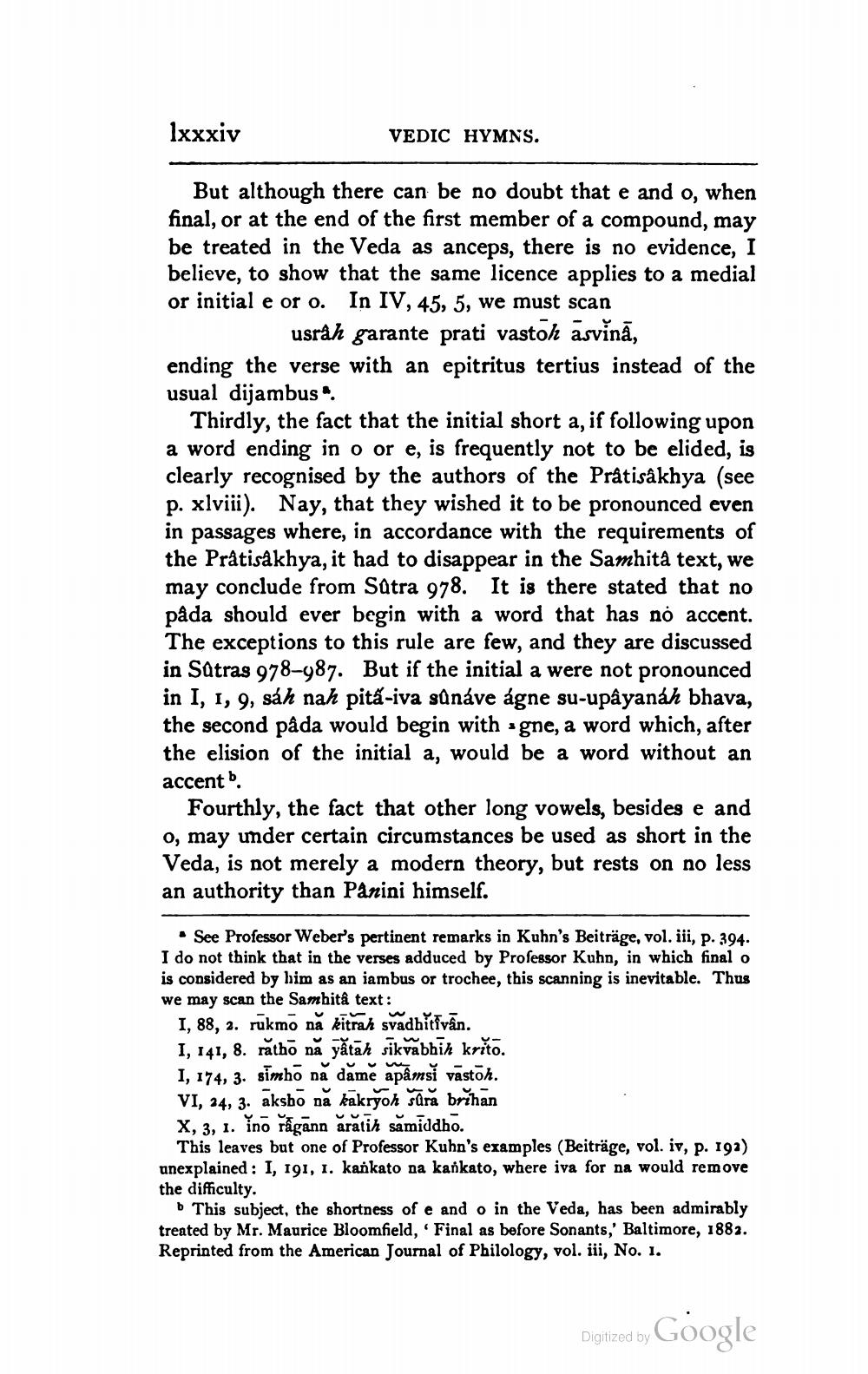________________
lxxxiv
VEDIC HYMNS.
But although there can be no doubt that e and o, when final, or at the end of the first member of a compound, may be treated in the Veda as anceps, there is no evidence, I believe, to show that the same licence applies to a medial or initial e or o. In IV, 45, 5, we must scan
usrah garante prati vaston asvinā, ending the verse with an epitritus tertius instead of the usual dijambus
Thirdly, the fact that the initial short a, if following upon a word ending in o or e, is frequently not to be elided, is clearly recognised by the authors of the Prâtisakhya (see p. xlviii). Nay, that they wished it to be pronounced even in passages where, in accordance with the requirements of the Prátisakhya, it had to disappear in the Samhità text, we may conclude from Sätra 978. It is there stated that no pada should ever begin with a word that has no accent. The exceptions to this rule are few, and they are discussed in Satras 978-987. But if the initial a were not pronounced in I, 1, 9, sáh nah pita-iva sünáve ágne su-upâyanáh bhava, the second pâda would begin with gne, a word which, after the elision of the initial a, would be a word without an accent b.
Fourthly, the fact that other long vowels, besides e and o, may under certain circumstances be used as short in the Veda, is not merely a modern theory, but rests on no less an authority than Panini himself.
• See Professor Weber's pertinent remarks in Kuhn's Beiträge, vol. iii, p. 394. I do not think that in the verses adduced by Professor Kuhn, in which final o is considered by him as an iambus or trochee, this scanning is inevitable. Thus we may scan the Sambitâ text:
I, 88, 2. rukmo nă kitran svadhitīvān. I, 141, 8. rătho nă yấtah sikvabhin krito. 1, 174, 3. simho nă dămě apāmsi vastöh. VI, 24, 3. aksbö nå kakryon süră brihan X, 3, 1. Ino rágann aratih samiddho.
This leaves but one of Professor Kuhn's examples (Beiträge, vol. iv, p. 197) unexplained : 1, 191, 1. kankato na kaňkato, where iva for na would remove the difficulty.
This subject, the shortness of e and o in the Veda, has been admirably treated by Mr. Maurice Bloomfield,' Final as before Sonants,' Baltimore, 1882. Reprinted from the American Journal of Philology, vol. iii, No. 1.
Digitized by Google




